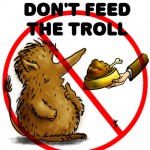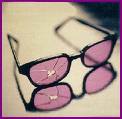In November, 2010, I wrote a blog post where I talked about a client who was sued for false marking, even though they had months before the suit changed the packaging of their product. We subsequently obtained a good result with our litigation strategy, and I think others may benefit from this experience. Moreover, I think it is important for we lawyers to share strategies for the overall benefit of our respective clients. This is not done enough: we legal experts all-too-frequently provide sagely advice from the comfort of our own siloed client experiences. For the past 3 years as a blogger, I have been working to build a more public dialogue on IP strategy, and did not want to let this opportunity go by to let others know of a successful strategy in dealing with a false marking litigation. (I feel comfortable sharing my experiences with this litigation,
False Patent Marking Lawsuit Update: A Tale of Successful Defense Strategy
Business Can’t Hide from False Patent Marking Lawsuits: Here’s How to Predict If You Might be Sued
The take home message: If your company sells a product that bears a patent number, you need to read this post in its entirety. Much has been written in recent months about false marking lawsuits, most of these in the form of "urgent legal alerts" by law firms that calmly deconstruct the appellate court rulings (this one is illustrative). At the end of the day, these articles likely do not look very "urgent" to business people like yourself because most business people do not engage themselves with patent law generally, let alone something as arcane as false marking. So, even though the subject excites us a patent experts, we really cannot expect you to get excited about something that does not seem to affect your ability to conduct business today. However, if your business is a likely target of a false marking lawsuit it will cost you big bucks almost immediately.
For Inventor of 21 Patents, Patent Troll Litigation Not Very Lucrative
Recently, I wrote a post on why I think that patent litigation is not a viable business model for inventors. Given a realistic deconstruction of the costs and possible damage awards, I concluded that, in most situations, it is not realistic for an inventor to presume that she will "hit the jackpot" by suing infringers and extracting settlement or damage awards. I obtained some pushback from this post, mostly from patent litigation lawyers, who contend that I am wrong in my view that patent litigation does not pay for inventors. Of course, everyone is entitled to their opinion, and I respect the views of others, however, no one who objects to my (somewhat) negative view of patent litigation as a business model, has provided me with numbers to discount my economic analysis of patent litigation. This recent post from The Prior Art blog entitled "Revealed! How Much Money a
The Coming Explosion of the Patent Monetization Market: Brought to You by Open Innovation and What Needs to Happen in Order to Speed Up the Process
This week, I got a call out of the blue from a very senior business development person at a Fortune 10 technology company "wanting to know more" about patent licensing and monetization. This was a bit strange: his company has literally dozens of patent professionals on staff, files 100's of patents a year and, as I found out, has 35 or so business people working on patent licensing and monetization efforts for the organization. So, why would he (let's call him "Bob") need to talk to me these topics? Certainly, there is a veritable army of highly-paid smart people to answer IP and patent questions at his beck and call, and I was interested in finding out what Bob sought to find out from me that he could not get from his own people. I was not surprised to find out that Bob did not want to learn more about buying and selling
The NY Times is Wrong: Patent Auctions Do Not Provide Indendent Inventors with “Protection”

- Patent auctions will do little to help independent inventors sell their patents
Is There an Emerging Business Model for IP Lawyers’ Owning So-Called "Patent Trolls"? Only Until Their Corporate Clients Find Out.
Dennis Crouch of The PatentlyO blog recently posted an intriguing tidbit about about well-known IP attorneys Carl Moore (Of counsel at Marshall Gerstein); Timothy Vezeau (patent attorney at Katten Muchin); and Nate Scarpelli (who used to and still appears to be associated with Marshall Gerstein). These prominent members of the Chicago IP community appear to be "moon-lighting" from their respective law practices to act as managing partners at a patent holding company called "Virtual Photo Store LLC" ("VPS"). As reported in PatentlyO, VPS is currently involved as defendant in a Declaratory Judgment action.
Here is a copy of the DJ Complaint, also posted at PatentlyO. (Interestingly, the Complaint lists VPS' address as that of the Marshall, Gerstein law firm.)The Complaint alleges that VPS is a non-practicing entity
about well-known IP attorneys Carl Moore (Of counsel at Marshall Gerstein); Timothy Vezeau (patent attorney at Katten Muchin); and Nate Scarpelli (who used to and still appears to be associated with Marshall Gerstein). These prominent members of the Chicago IP community appear to be "moon-lighting" from their respective law practices to act as managing partners at a patent holding company called "Virtual Photo Store LLC" ("VPS"). As reported in PatentlyO, VPS is currently involved as defendant in a Declaratory Judgment action.
Here is a copy of the DJ Complaint, also posted at PatentlyO. (Interestingly, the Complaint lists VPS' address as that of the Marshall, Gerstein law firm.)The Complaint alleges that VPS is a non-practicing entity
Chief Circuit Judge Michel Agrees with Me: NPE’s (aka "Patent Trolls") are Not Necessarily "Illegitimate"
On his great 271 Blog, Peter Zura posted excerpts of the Chief Circuit Judge Michel's keynote address at the FTC hearings on "The Evolving IP Marketplace" last December where Judge Michel addressed the state of patent law and patent reform. Anyone interested in patents, the USPTO and patent reform should take a look. I posted a comment on this post, and am reposting it here (with additions) along with Judge Michel's comments about NPE's as presented on the 271 blog. Specifically, I was intrigued by Chief Circuit Judge Michel's view that NPE's ("non-practicing entities" also known by the pejorative term "patent trolls") should not be viewed as somehow "illegitimate." He apparently believes that by allowing those who are on the receiving end of NPE lawsuits to control the argument by "naming and framing" (my phrase) the problem as "trolls" is not helpful. Here is the excerpt of this part of
A Response to PWC’s "Starry-Eyed" View of the Value of Litigation as Effective Way to Monetize Patents
 I recently became aware of this patent litigation analysis prepared by PriceWaterhouseCoopers (“PWC”) (hat tip: Marcus Malek of the Intangitopia blog). The report appears to be rigorously prepared from data obtained from a large number of reported patent litigation cases dating from 1995. I read this report with interest and think that anyone who is interested in the ROI of patent enforcement should read it also. The data provide a wealth of information for anyone even thinking about bringing a patent case or who is involved in defending against claims of patent infringement.
Although the data in the PWC provides informational value, I nonetheless have a big problem with the following assertion that is prominently presented on page 18 under the title “What This Means for Your Business”:
"In light of the findings in this study, patent
I recently became aware of this patent litigation analysis prepared by PriceWaterhouseCoopers (“PWC”) (hat tip: Marcus Malek of the Intangitopia blog). The report appears to be rigorously prepared from data obtained from a large number of reported patent litigation cases dating from 1995. I read this report with interest and think that anyone who is interested in the ROI of patent enforcement should read it also. The data provide a wealth of information for anyone even thinking about bringing a patent case or who is involved in defending against claims of patent infringement.
Although the data in the PWC provides informational value, I nonetheless have a big problem with the following assertion that is prominently presented on page 18 under the title “What This Means for Your Business”:
"In light of the findings in this study, patent
Confessions of a Non-Recovering Patent Troll Enabler
I came across this TechDirt article: Exposing The Patent Troll Playbook... And How To (Almost) Beat It (h/t Ron Carson, VP of Marketing at Innovation Asset Group). This is an insider's account of what it is like to be the victim of a so-called "patent troll". Perhaps better than the article itself are the comments which make it clear how passionate people are about the topic of patent trolls. This is recommended reading, if just for the entertainment value of the comments. Reading the TechDirt article made me recall my time as a junior litigator at a well-known Atlanta law firm. As a very green (and tired) young attorney, I sent many "licensing offer letters" for the AudioFax Company. In this role, I was an enabler of a very successful patent troll. And, as set out in this post, I have continued to enable patent trolls throughout my more
If You Can’t Beat ‘Em, Join ‘Em: Patent Strategy as a Business Model
In the May 12, 2008 New Yorker Magazine article, Malcolm Gladwell posits that there is no shortage of ideas. Rather, he indicates that what is needed is disciplined processes centering on invention and execution of those ideas through into the marketplace. Mr. Gladwell's article (which I believe is a must-read for those of us in the "innovation game"), goes about proving his hypothesis by reporting on the inventive processes of the principals of Intellectual Ventures. (Intellectual Ventures website is linked here: http://www.intellectualventures.com/).Intellectual Ventures is a new type of company. Its premise is that highly skilled scientists, engineers and other types of "big thinkers" can learn enough about a technical or human problem, such as a common medical condition, to invent possible solutions when in a "brainstorming session" with other high level thinkers of varying disciplines. Intellectual Ventures then files patent applications for the most promising of those solutions,


